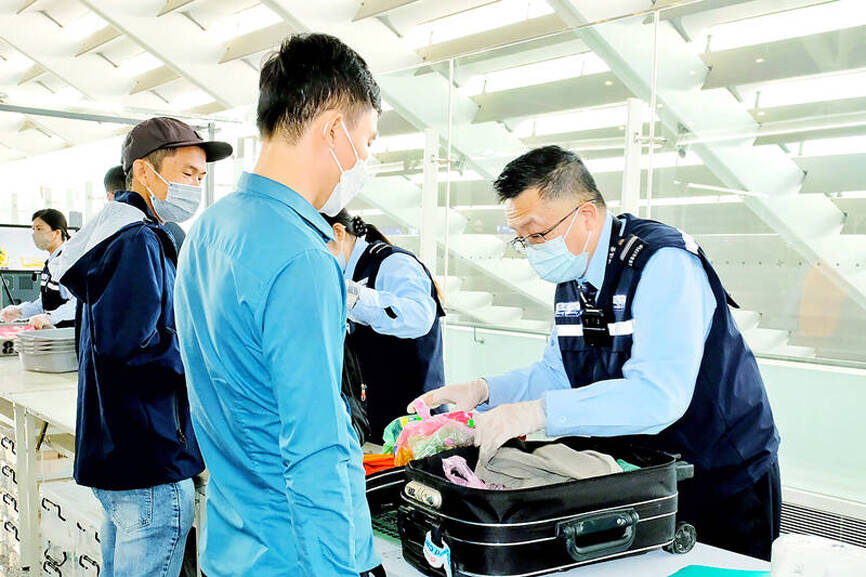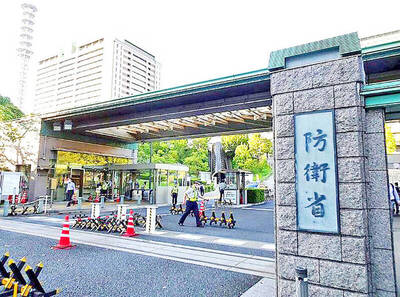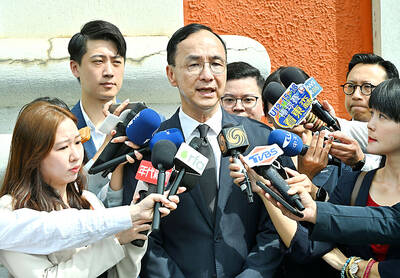The Customs Administration could in June begin fining people who smuggle counterfeit goods valued at less than NT$5,000 and that infringe upon copyright laws, an official familiar with the matter said.
The administration proposed an amendment to the Customs Anti-smuggling Act (海關緝私條例) to make penalties for the exportation and importation of counterfeit items fairer, the official said.
The current act stipulates that smugglers or those dealing in smuggled goods may be fined up to three times the value of the goods and that the items may be confiscated.

Photo: CNA
However, the act exempts individuals from fines in cases in which the duty-paid value or the free-on-board (FOB) value of the goods does not exceed NT$5,000. The exemption does not apply to guns, ammunition and drugs.
The act also stipulates that if declared goods are found to be counterfeit and infringe on patent, trademark or copyright laws, a fine of up to three times the value of the goods may be imposed, and the goods be confiscated.
That means that while smugglers are exempt from fines if they have imported counterfeit goods of lesser value, those who report the goods to customs must pay fines regardless of the value, the official said.
The proposed amendment would expand the list of items not covered by the exemption to include counterfeit goods that contravene patent, trademark and copyright laws.
If the act is implemented, smugglers would be fined up to three times the value of the counterfeit goods, regardless of what their duty-paid or FOB values are, the official said, adding that counterfeit products would be confiscated.
The proposed amendment is open to public comment until April 28 and could be implemented in June, they said.

LOOKING NORTH: The base would enhance the military’s awareness of activities in the Bashi Channel, which China Coast Guard ships have been frequenting, an expert said The Philippine Navy on Thursday last week inaugurated a forward operating base in the country’s northern most province of Batanes, which at 185km from Taiwan would be strategically important in a military conflict in the Taiwan Strait. The Philippine Daily Inquirer quoted Northern Luzon Command Commander Lieutenant General Fernyl Buca as saying that the base in Mahatao would bolster the country’s northern defenses and response capabilities. The base is also a response to the “irregular presence this month of armed” of China Coast Guard vessels frequenting the Bashi Channel in the Luzon Strait just south of Taiwan, the paper reported, citing a

A total lunar eclipse, an astronomical event often referred to as a “blood moon,” would be visible to sky watchers in Taiwan starting just before midnight on Sunday night, the Taipei Astronomical Museum said. The phenomenon is also called “blood moon” due to the reddish-orange hue it takes on as the Earth passes directly between the sun and the moon, completely blocking direct sunlight from reaching the lunar surface. The only light is refracted by the Earth’s atmosphere, and its red wavelengths are bent toward the moon, illuminating it in a dramatic crimson light. Describing the event as the most important astronomical phenomenon

ENHANCING DETERRENCE: Stationing the missiles in Kyushu would allow Japan to cover waters near Taiwan and China’s coastal areas without any logistical difficulties Japan is to deploy extended-range anti-ship missiles at a Ground Self-Defense Force base in Kumamoto to bolster its defenses, the Yomiuri Shimbun reported on Saturday. The upgraded Type 12 surface-to-ship missile, with a range of more than 1,000km, would be capable of striking targets in the Taiwan Strait and along China’s coast. Originally limited to a few hundred kilometers, the Type 12 was recently modernized ahead of schedule. Deployment, initially slated for next year, has been accelerated after the upgrade was completed sooner than expected, the newspaper said. Stationing the missiles in Kyushu would allow Japan to cover waters near Taiwan and

The presence of Taiwanese politicians at China’s military parade tomorrow would send the wrong message to Beijing and the international community about Taiwan’s sovereignty and democracy, a national security official said yesterday. China is to hold the parade tomorrow to mark the 80th anniversary of Japan’s surrender in World War II. By bringing together leaders of “anti-West” governments such as Russia, North Korea, Iran and Belarus, the parade aims to project a symbolic image of an alliance that is cohesive and unbending against Western countries, the national security official said, speaking on condition of anonymity. Former Chinese Nationalist Party (KMT) chairwoman Hung Hsiu-chu